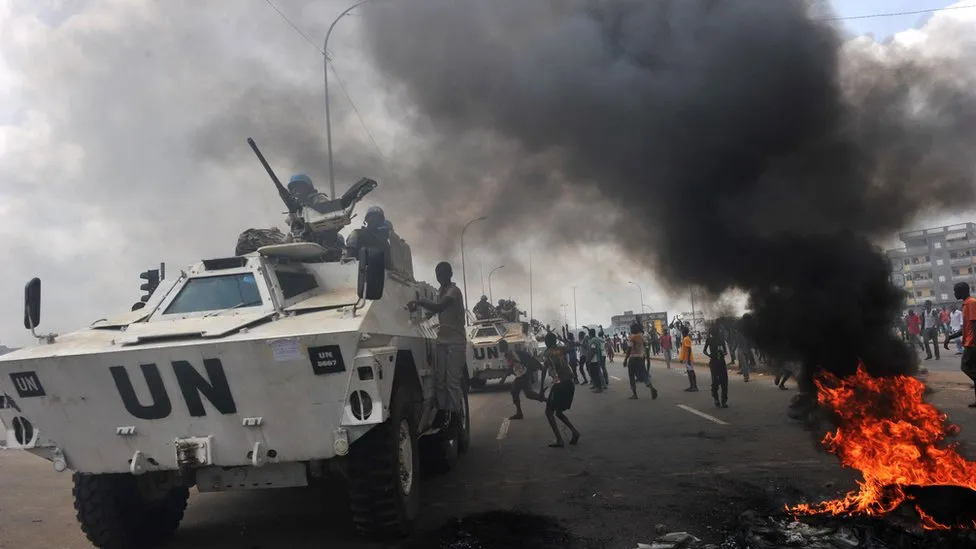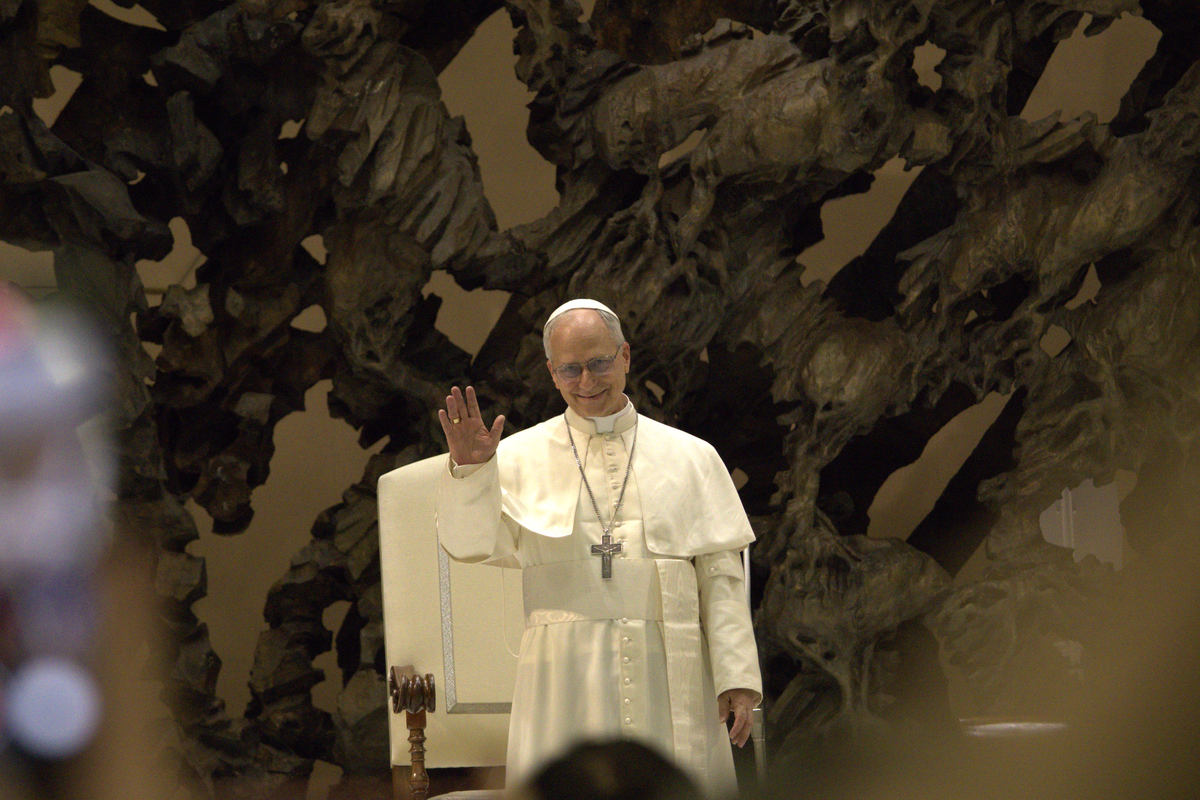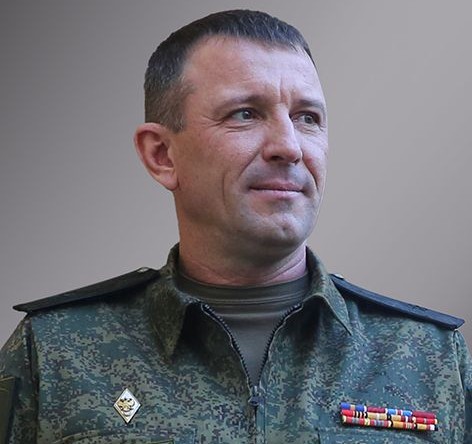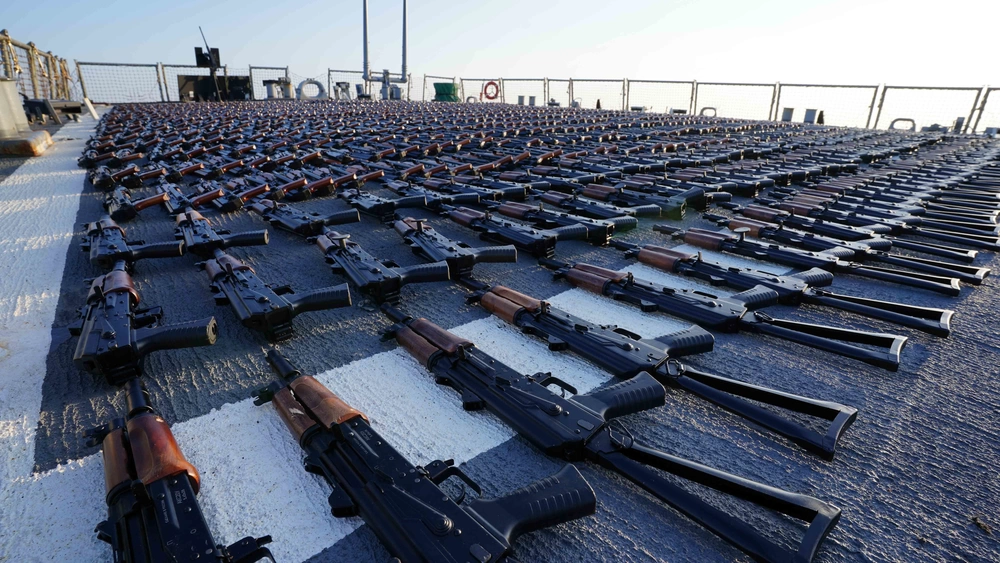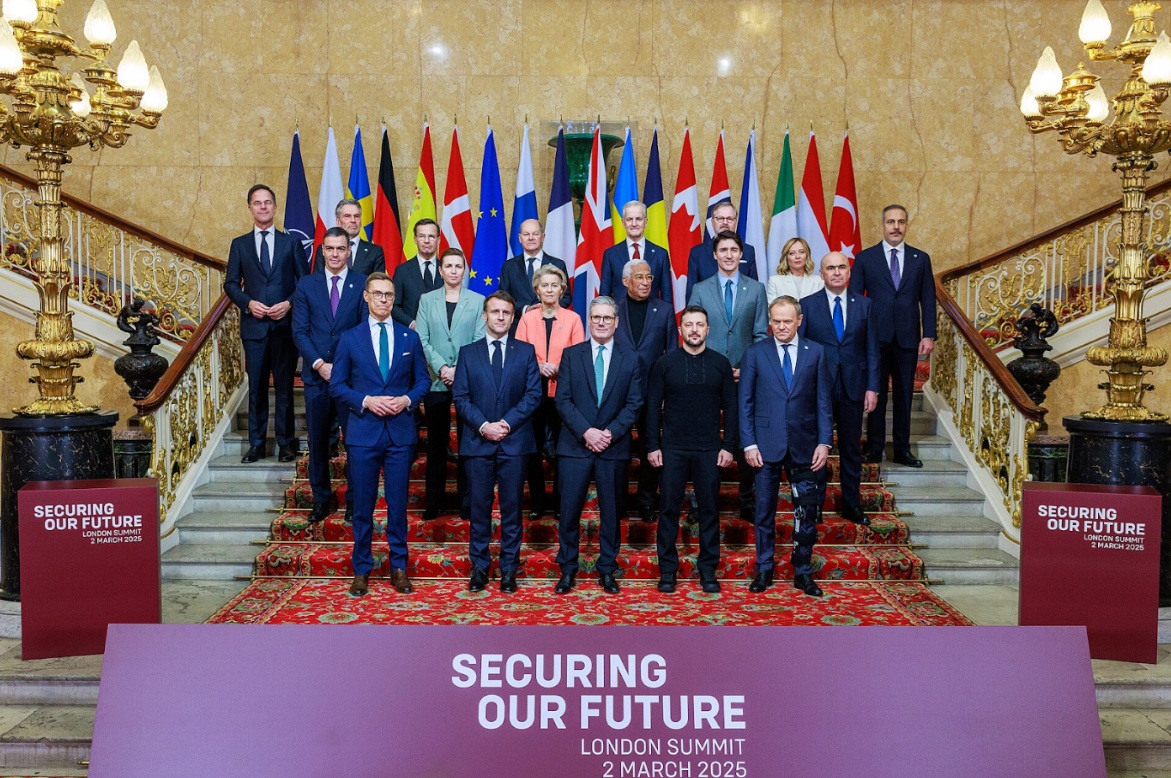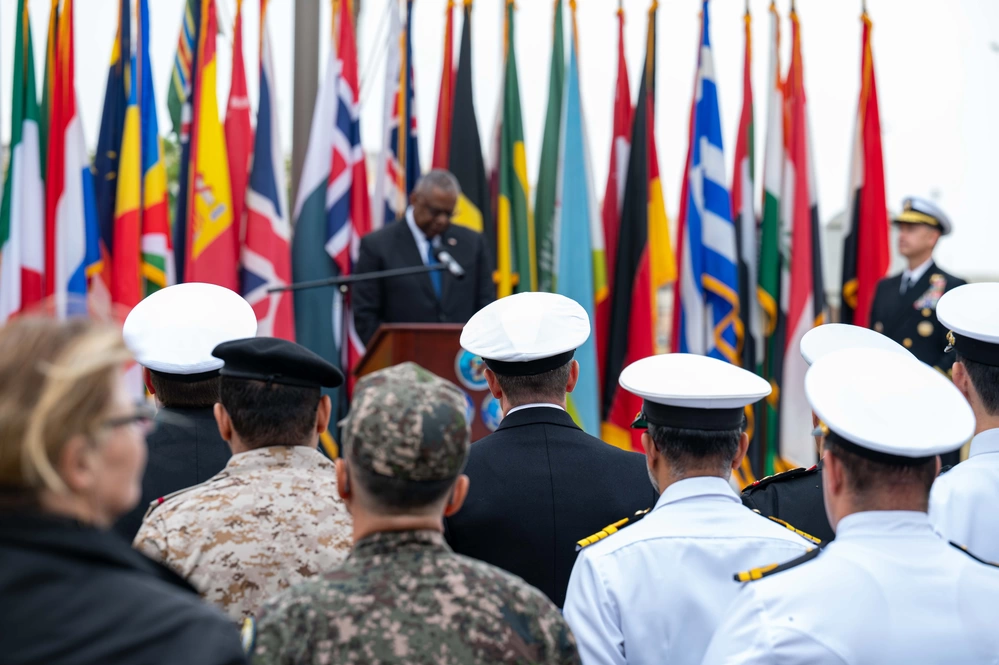The world still shivers at the mention of the Holocaust, echoed in the saying “never again.” But how effective have we truly been at upholding that promise? It’s tempting to believe we’ve entered a new era, one free from such barbarity. However, the reality is much more bleak. There have been nine major genocides since the beginning of the 20th century, and five of them have occurred within the past thirty years alone. From the systematic targeting of Tutsis in Rwanda to the ethnic cleansing of Yazidis in Iraq, these atrocities challenge our assumptions and expose a chilling truth. These issues persist despite the Genocide Convention, an international treaty ratified by nearly every country. It set out to prevent and punish genocide, which became an internationally recognized crime. The harsh reality of dysfunctional international institutions compels us to ask the question: Can international law effectively work to avoid conflict while allowing for intervention in times of need?
Understanding the complexities of this question requires us to understand international governance and its limitations. While the Genocide Convention stands as a vital effort to prevent and punish atrocities, the actual situation is more nuanced. The United Nations, despite its noble intentions, often encounters roadblocks that delay or prevent intervention. One major hurdle is the U.N. Security Council’s veto power, wielded by its permanent members. This effectively grants any one of these countries (the United States, United Kingdom, France, Russia, and China) the power to stall action, which leaves vulnerable populations exposed. Even the Responsibility to Protect (R2P) principle, aimed at preventing atrocities, has faced challenges in implementation. According to the United Nations, it has three pillars: the responsibility of every country to protect its population, the responsibility of the international community to help countries protect their population, and, most importantly, the responsibility of the international community to protect when a state is failing to protect its populations. The ongoing plight of the Rohingya Muslims in Myanmar is a grim testament to the limitations of international systems in preventing and putting an end to atrocities. Their ongoing struggle for survival exposes the stark gap between lofty ideals and the harsh realities on the ground.
International institutions like the United Nations (U.N.) and the World Health Organization (WHO) are cornerstones of global cooperation. They tackle complex issues like climate change, trade, and human rights. However, their effectiveness is constantly up for debate among global policy scholars. Critics like Nobel laureate and economist Joseph Stiglitz argue that governments need institutions to help manage crises, but that existing organizations need reform due to dysfunction and lack of transparency. This argument is not uncommon, with many believing governments need to be held accountable to work together and meet shared goals, but that the institutions don’t have adequate enforcement mechanisms. For example, the International Criminal Court (ICC) investigates individuals accused of crimes most dangerous to mankind, such as war crimes, genocide, crimes against humanity, and more. Though many countries are members, major countries like the United States, India, Russia, and China are not, which is incredibly important because countries can only be prosecuted if they ratify the Rome Statute, the court’s founding document. Even if a country is a member of the ICC, the court cannot enforce arrest warrants if the country is unwilling to cooperate. Beyond enforcement, questions linger about the democratic legitimacy of some institutions. Critics argue that the power structures within organizations like the World Bank and the International Monetary Fund (IMF) favor developed nations. Some argue that these policy practices benefit lenders over the countries in need, raising questions if the institutions truly represent the best interests of the global community.
At the international level, support for global institutions remains high. A Pew Research study analyzing global attitudes found that out of the 14 countries surveyed, an average of 62 percent of people trust international institutions, with a high of 74 percent in Belgium and a low of 41 percent in Japan. In addition, 53% of Americans say that many of the problems facing the U.S. can be solved by working with other countries. The data suggests that people are generally trusting of the organizations and their impact.
The idea of a power balance within organizations like the U.N. is another thing to consider. In the case of the International Monetary Fund, an organization that monitors global economic well-being and offers loans to struggling countries, the disparity between developed and developing countries is clear. The IMF has a system in which countries that contribute the most economically are given the most voting power. Critics argue that the system is unfairly skewed towards wealthy countries and inferior to a system that would have equal voting power. Furthermore, countries that undertake IMF loans are required to implement reforms intended to bolster the receiving countries’ economies. While they aim for long-term stability, they can often have unintended consequences. High interest rates can slow business activity, fiscal austerity can lead to a decrease in social services available, and privatization can lead to greater unemployment. These policies have at times had the opposite of the intended effect on the local economies. For example, a 2018 IMF loan required Argentina to make cuts to spending equal to 4.4% of GDP to restore market confidence. As a result, investor confidence dropped rapidly, leading to a contraction in the market. Possibly most concerning is IMF loan recipients experiencing a loss of sovereignty—the authority of a state to govern itself—to wealthier countries. By having limited control over the ability to regulate spending and other economic measures, IMF loan recipients become subject to the control of lending countries. Advice from the IMF is important to ensure that loans can be repaid and to secure the economic future of the countries. However, flexible conditions tailored to each country’s unique situation would be more effective and would allow the sovereignty of the developing nations to be respected. The IMF is just one example of the broader issue of power imbalances created within international institutions.
Reforming international institutions is something that has been discussed for many years, but has only been realized to a limited extent. According to a paper from Stanford’s James D. Fearon, international institutions will only be able to support the rule of law if powerful states such as the United States see enough benefits working within them and they accept some decisions they don’t agree with. However, as previously mentioned, in organizations like the United Nations, the Security Council can only pass measures with unanimous approval from founding members. Therefore, countries like the U.S. don’t have to compromise and can hold all the power. This leads to several critical issues. First, disagreements between powerful states can create stagnation in the Security Council, preventing decisive action on international crises. Additionally, the credibility of the Security Council and the U.N. suffers as a whole when it is perceived to be a tool of the powerful. Powerful countries may be more inclined to support military interventions against weaker countries while protecting allies, further expanding the power gap.
One reform that has been suggested is reforming the U.N. Security Council and the use of the veto. A recent U.N. General Assembly meeting included discussions of minimizing veto use, where they advocated for limiting its use to issues other than war crimes, crimes against humanity, and genocide. Suggestions for reform include expanding permanent membership on the Security Council from the 5 current members to include Germany, Japan, India, and Brazil. An alternative option would be expanding the elected membership from 10 to 20 to encompass all regions and create a more equitable council that isn’t biased towards certain areas of the world. However, while adding members makes resolutions more representative, it doesn’t stop countries like Russia, for example, from using its veto to block all resolutions that punish it for invading Ukraine. Despite concerns, there are significant hurdles that would need to be cleared to make any reforms. Two-thirds of all U.N. members, as well as all members of the Security Council, would need to approve a change to the composition of the council or its voting rules. It is unlikely that a country like the U.S. would ever support Security Council reforms that include removing the veto. For that reason, Security Council veto reforms would need to focus on limiting the power of the veto rather than removing it. For example, it could be restricted to certain issues like authorizing the use of force. Though there are significant issues in the Security Council’s structure, it has been effective in its intended purpose of preventing world war between powers like the U.S. and the U.K. with China or Russia. As seen with the resolution of the Cuban Missile Crisis, the UNSC acted as a platform for dialogue between the Soviet Union and the United States during the Cold War, allowing for crucial discourse that reduced the risk of nuclear war. We can see that there are definite limitations in international institutions’ effectiveness, as well as in options for reform.
The international community has established a framework of laws aimed at preventing atrocities like genocide, war crimes, and crimes against humanity. However, the atrocities continue to occur. Unlike national laws, which have federal and state governments to ensure that laws are followed, international law lacks a real enforcement mechanism. The U.N. relies on member states to uphold its principles, but there is no international police force to enforce its laws. Even when the International Court of Justice rules against a country, it lacks any enforcement power and must gain unanimous support from the UN Security Council (UNSC) to punish guilty parties. Imagine if in the United States, every citizen promised to follow the laws but there were no police to make sure we kept our promise. Many people would end up breaking the laws for their benefit. Similarly, many countries violate international law to advance their interests, such as territorial expansion, economic advantage through illicit trade practices or resource exploitation, perpetrating human rights abuses to maintain power, and rationalizing actions under the guise of national security concerns. Countries can refuse to cooperate with the International Criminal Court (ICC) to prosecute one of their country’s citizens, and the veto power of the UNSC allows states to avoid accountability for breaking international law. Beyond enforcement, international law appears to have issues in definitions, such as with the word “aggression.” Although progress has been made in international organizations to create definitions of their own, there remains a discrepancy between institutions, such as between the ICC and the Organization of American States. The lack of a universally agreed-upon definition allows powerful countries to argue that their actions fall outside of the definition, and more violations can occur as a result. Unclear definitions create loopholes that countries can exploit to avoid adhering to the principles of international law. For example, Russia’s annexation of Crimea in 2014 was justified by Russia as protecting Russian-speaking populations and securing national interests, asserting that these actions did not constitute aggression. However, many countries in the international community, including the U.S. and the E.U., viewed it as an act of aggression.
Countries seem to vary greatly in their adherence to international law. The European Union and its member states have been staunch supporters of international law, such as the Rome Statute and the Responsibility to Protect (R2P). They have imposed sanctions and other punitive measures against countries that have violated international criminal and humanitarian law. Countries like Canada, Australia, and Scandinavian countries have also routinely supported adherence to international law. However, countries like Russia and China have used their veto power in the UNSC to block or water down resolutions aimed at preventing atrocities. Both countries have committed human rights abuses of their own, as well as providing support to other oppressive regimes. For example, Russia has detained and killed numerous journalists and opposition candidates, as well as providing weapons to the regime of dictator Bashar Al-Assad of Syria. China has detained over one million Muslim Uyghurs in reeducation camps for forced labor and indoctrination, while providing North Korea with substantial economic aid, such as food and energy supplies, enabling the regime to tightly control its population and suppress dissent. The United States has had a much more complicated record. According to Washington University in St. Louis’ Aaron Fellmeth, the U.S. has historically supported international law but has selectively adhered to it, sometimes violating it in favor of national interests. For example, they invaded Iraq without explicit U.N. approval, engaged in torture of suspected terrorists in Guantanamo Bay, and have been accused of committing war crimes in Afghanistan, undermining international legal norms. There exist many complexities in the decision-making process for countries like the U.S., which often favor human rights but at times violate them in favor of national interests. Despite the varying levels of commitment to international law among nations, the legal landscape around preventing atrocities is filled with challenges.
One of the key factors that complicates preventing atrocities in the scope of international law is the idea of state sovereignty. According to the Stanford Encyclopedia of Philosophy, sovereignty simply means supreme authority within a territory. If states have exclusive jurisdiction over their country’s domestic affairs, then other countries cannot intervene. This makes it difficult for states to justify intervention to stop atrocities of a sovereign state even when extreme human rights abuses are occurring. One example in which this occurred was during the Rwandan Genocide of 1994. Under the Hutu government, more than 800,000 Tutsis were killed in just three months. The U.N. was hesitant to intervene despite clear genocide occurring due to concerns over violating Rwandan sovereignty and issues in a recent U.N. peacekeeping mission in Somalia. When the genocide began, the U.N. reduced its peacekeeping force in the country, giving the Hutus the green light to go forth with their murderous campaign against the Tutsis. It was not until 800,000 were killed that a French-led operation took place, but by then it was too late to save three-quarters of the Tutsis. This event highlighted the issues over state sovereignty in international law in the face of atrocities.
After the genocide of the Tutsis, the Responsibility to Protect (R2P) doctrine was created and subsequently adopted by all U.N. members in 2005. The idea says that countries have a fundamental right to protect their citizens, and if they fail to do so, the U.N. has the right to intervene to help vulnerable populations. The R2P principle was put to use in 2011 during the Libyan Civil War when leader Muammar al-Qaddafi responded to protests with extreme violence. The U.N. then invoked R2P, authorizing NATO to violate Libya’s sovereignty to prevent a massacre. It ended in regime change with the assassination of al-Qaddafi, but the country remains extremely unstable and dangerous today. Many countries were hesitant to invoke the R2P principle before, but after the failure in Libya, countries like Russia and China are even less likely to vote to invoke it in the future. In the Syrian Civil War, dictator Bashar al-Assad has committed war crimes that have resulted in the death of hundreds of thousands of people. The U.N. Security Council voted on invoking R2P, but Russia and China vetoed it, undermining the credibility of R2P in the face of atrocity prevention. Because of the existence of the U.N. Security Council’s veto power and disagreements over state sovereignty trumping the need to intervene in the name of human rights, we may never see the R2P principle invoked again.
The future of intervention amid human rights abuses is uncertain without a consistently applied and implemented R2P. The options within an international legal framework are slim to none, but if countries decide to work together to intervene outside of the realm of international law, it may cause international law to lose even more of its already-waning credibility. One alternative is imposing sanctions on countries perpetrating atrocities, but economic harm can be eluded with the help of other oppressive regimes like Russia, China, or North Korea. Another option is developing early warning mechanisms and preventive diplomacy efforts to try to get at the root of problems before they devolve into disasters. Additionally, getting more countries to adopt universal jurisdiction could help increase accountability. Universal jurisdiction allows national courts to prosecute individuals for crimes like genocide, war crimes, and crimes against humanity regardless of where the crime was committed or the nationality of the perpetrators or victims. An example of this was when the Chilean dictator Augusto Pinochet evaded Chile and fled to London, but was able to be arrested there on a warrant issued by a Spanish judge because of the torture and murder of Spanish citizens under Pinochet. This is a powerful example of how individuals guilty of extreme human rights abuses can be held accountable with greater international cooperation.
The dream of a world free of atrocities feels frustratingly distant, as the news bombards us with images and videos of distant conflicts and human rights abuses. These tragedies, though seemingly far-removed, can affect global peace and safety. The rise of authoritarian regimes can destabilize the world order, creating a more dangerous world for everyone. International law, with all its imperfections, offers a framework for cooperation and intervention. It establishes a set of rules aimed at preventing atrocities and provides a legal basis for intervention in the face of barbaric acts. However, it is not a panacea—enforcement mechanisms are demonstrably weak, and powerful countries can sometimes exploit loopholes or wield veto power within international institutions like the UN to shield themselves from consequences. State sovereignty further complicates the issue as countries aim to ensure other states can have control over their affairs. Despite these limitations, international law offers a crucial foundation for a more just and peaceful world. Imagine driving without traffic laws—the result would be chaos. International law, with all its shortcomings, serves a similar role on the world stage. Now, the future of international law remains uncertain. Technological advancements, the rise of new global powers, and an ever-shifting geopolitical landscape will all play a role in shaping its effectiveness. The fight against atrocities is an ongoing struggle, but with continual commitment and innovation, international law can adapt into a more robust shield against barbarity.


